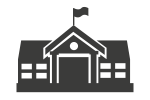Community
We’re setting up a European-wide Community of Practice for all those interested in the power of coding, making and gaming for transforming young people’s lives. A Community of Practice is a group of people who share a passion for something they do and learn how to do it better individually and together as they interact regularly. We’d love for you to join this community, learn with us, and share your advice and experiences to help others.

The Community involves 5 key stakeholder groups:

Education Academics and Researchers
People who study learning and the interplay between formal and non-formal / informal learning.

Educators (including facilitators, teachers and practitioners)
People developing, delivering or, interested in using, coding, making and play-related non-formal / informal sector learning experiences through various practices.

Policy Makers
People at local / regional / National / EU / International level who have the authority to shape how education works (at different levels).

Learners
Young Europeans (children, adolescents and young adults).

Parents
The caregivers of learners.
There are several ways to get involved. For example, you can:
- join in local and international workshops and events;
- take part in online groups and discussion forums;
- get informed about the latest news of the project’s activities and results;
- share your knowledge and listen to other's experiences.
Join the community
Please fill in the following form and press the SUBSCRIBE button to become a member of the COMnPLAY SCIENCE Community of Practice.
You can change your mind and unsubscribe from the community at any time by clicking the unsubscribe link in the footer of any email you receive from the project, or contacting Prof. Michail Giannakos (Project Coordinator) at